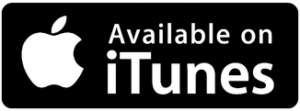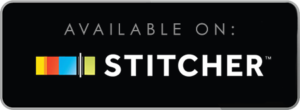Are you someone who is looking to transition into law? In this engaging podcast episode, Jim and Tyson sit down with Bill Gshwind of Minnesota Construction Law, who shares his unique journey into law after a 25-year tenure in business.
In this episode, Jim and Tyson will catch up with each other. They will go over what’s been going on with their businesses and then dive in into this week’s topic: where are they going to be 25 years from now. Also, they will discuss about building a culture in a law firm and BHAGS.
[smart_track_player url="http://traffic.libsyn.com/maximumlawyer/Episode_111.mp3" social_linkedin="true" ]
This episode is all about building for the future, expanding, and putting in place systems that will allow us to grow; Innovating and improving ourselves.
BHAGS - Big Hairy Audacious Goal
“If you pick the wrong BHAG, your setting your firm off on a terrible course. If your team isn’t unified on that goal, your gonna screw the whole thing up.”
Built to Last: Successful Habits of Visionary Companies by Jim Collins
In 25 years:
Jim sees his firm with offices across the country and as the biggest law firm for family immigration services, with all their systems build out and a franchise model.
Tyson wants to have the most successful personal injury law firm in the midwest, with an office in every single city of the midwest.
Hacking’s hack: A book about having a learning organization:
The Fifth Discipline: The Art & Practice of The Learning Organization by Peter Senge
Tyson’s tip: An app to look good.
Custom Clothing Made in Your Size
//
Thanks so much for listening to the show! If you want to know more about this and keep on maximizing your firm, please join our Facebook Group or like us on Facebook and comment!
You can also go to MaximumLawyer.com or, if you’d prefer, email us at: [email protected]
Do you want to get on the show? Shoot us an email or message us!
The Maximum Lawyer Podcast. Partner up, and maximize your firm.
Guild Membership
Free Access to Stage 1 of Maximum Lawyer in Minimum Time
Sign Up Today!Customer Reviews
4.9 out of 5
Join Our Facebook Group
Enjoy Exclusive Access To Stage One Of The Maximum Lawyer In Minimum Time Course
Privacy Policy
This privacy policy has been compiled to better serve those who are concerned with how their ‘Personally Identifiable Information’ (PII) is being used online. PII, as described in US privacy law and information security, is information that can be used on its own or with other information to identify, contact, or locate a single person, or to identify an individual in context.
Please read our privacy policy carefully to get a clear understanding of how we collect, use, protect or otherwise handle your Personally Identifiable Information in accordance with our website.
What personal information do we collect from the people that visit our blog, website or app?
When ordering or registering on our site, as appropriate, you may be asked to enter your name, email address or other details to help you with your experience.
When do we collect information?
We collect information from you when you register on our site, place an order, subscribe to a newsletter, Use Live Chat, Open a Support Ticket or enter information on our site.
How do we use your information?
We may use the information we collect from you when you register, make a purchase, sign up for our newsletter, respond to a survey or marketing communication, surf the website, or use certain other site features in the following ways:
- To personalize your experience and to allow us to deliver the type of content and product offerings in which you are most interested.
- To improve our website in order to better serve you.
- To allow us to better service you in responding to your customer service requests.
- To quickly process your transactions.
- To send periodic emails regarding your order or other products and services.
- To follow up with them after correspondence (live chat, email or phone inquiries)







